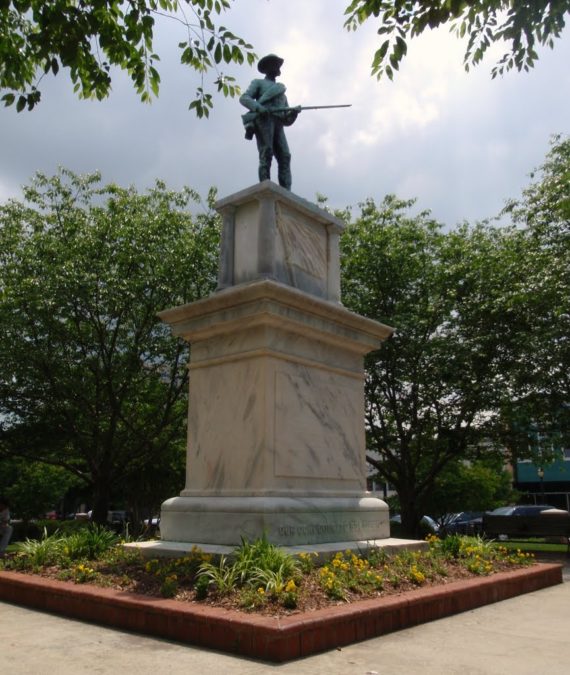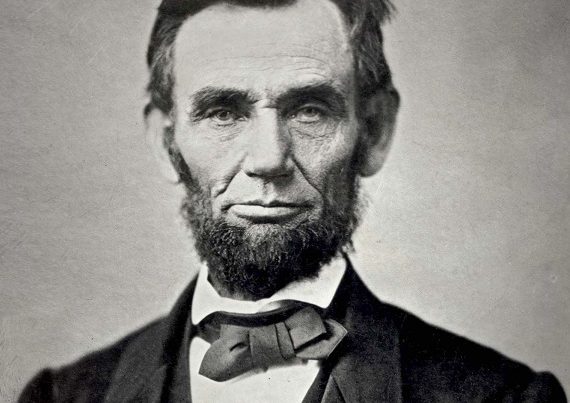Statement about the “slavery the sole cause of the war” plaque affixed to the Confederate soldier monument in Gainesville, Florida.
I have been asked to comment on the recent fad of “contextualizing” historic monuments as it relates to the Confederate soldiers’ memorial at Gainesville.
What I have seen of the proposed plaque amounts, it seems to me, to an attempt to revise history and to establish an official version of history.
An historical monument should be taken for what it is. Opinions may differ about it, but it is a piece of history in itself. The Confederate soldiers’ monument was erected by people who wanted to remember their kin and neighbors who had fought and died opposing what was a quite vicious and destructive invasion. A third of the Florida men opposing invasion died—a fact that was of heavy significance to the people who erected the monument. The cost of the monument in 1904 was no doubt a considerable sacrifice to people still living in poverty brought on by the war.
It is now fashionable to dismiss this as “Lost Cause Mythology.” This only works if you assume that these early Floridians were particularly bad and dishonest people who lied about the past. The inscription implies that its writer is somehow wiser and more virtuous than those people. And the writer at the same time suffers under a much bigger myth—that the War was fought by the North as a righteous crusade to free the slaves and not for the supremacy of the federal government and economic profit.
It is arrogant for activists of a later generation to reinterpret what they did according to its own trendy version of history. Historical interpretations change and will continue to do so as long as people are able to explore the past with open minds. Two generations ago the most distinguished historians, far more penetrating and knowledgeable than the current crop, believed that the Civil War was about economics, not slavery. They added the complications of political mistakes and cultural antagonism. History has not changed—it has merely been reinterpreted. Two generations from now “experts” may regard the Politically Correct plaque as a curiosity of the preoccupations of our own time.
The Civil War was an immense and complicated event with issues that evolved over time. To interpret it entirely according to one statement in one document, like the secession ordinance, is a juvenile way of understanding the past. It illuminates nothing and teaches no humane lesson. The motive is political, not learning from the past. The proposed inscription pretends that it has established conclusively an interpretation of events that will always be in dispute. Its use of the document that it relies on is not even very thorough or accurate.
I believe various opponents of the plaque have provided ample information to indicate that the proposed inscription assumes the truth of many disputed facts, especially as to slavery being the sole issue of the war. As an historical account it is deficient in many respects, telling only a small part of a very big story—a small part that is pleasing to today’s propaganda. If wanted, I will be glad to prove this by chapter and verse. As for the African Americans of the time, it is a fact that many of them supported the soldiers fighting the invader and that their encounters with U.S. soldiers were frequently very unpleasant.
I would like to call attention to one more really egregious passage in the version of the proposed inscription that I have seen. The writer refers to the 2015 mass murder in Charleston as having “prompted a national conversation about the symbols of the Confederacy.” This is essentially false and is a mythmaking attempt to control what future history will say about our own current times. The tragedy had nothing to do with honoring Confederate symbols. No such “national conversation” ever took place. The incident, I believe, did not change the opinion of a single individual pro or con. I was there. What happened was that politicians seized the opportunity to remove a troublesome issue off their table.
I must say that what I have seen of the inscription it sounds like an exercise of one person’s rather superficial opinions, rather than the serious statement of a community’s belief.
I would suggest leaving the monument alone. Those who want to tell a different story are perfectly free to build their own memorials.







